Forgiveness, Part I
Luke 17:1-4 - Jesus said to his disciples: "Things that cause people to sin are bound to come, but woe to that person through whom they come. It would be better for him to be thrown into the sea with a millstone tied around his neck than for him to cause one of these little ones to sin. So watch yourselves. If your brother sins, rebuke him, and if he repents, forgive him. If he sins against you seven times in a day, and seven times comes back to you and says 'I repent,' forgive him."
I want to acknowledge that forgiveness is a very emotional issue. Just the mention of it will send some of us into fits of rage/anger, some will experience great sadness or tears, some feel fear or frustration and many will be tempted to run away or avoid this topic for any number of reasons.
Some of you might cross your arms and say, "Sure I'll forgive her... when Gehenna freezes over." Or, "How dare you tell me to forgive? You have NO IDEA what heinous and evil offences someone else has perpetrated against me or my loved one."
I'm going to answer this: "You're right. I don't. If I did it would probably make me just as angry as you are. It would probably make me sick to my stomach.
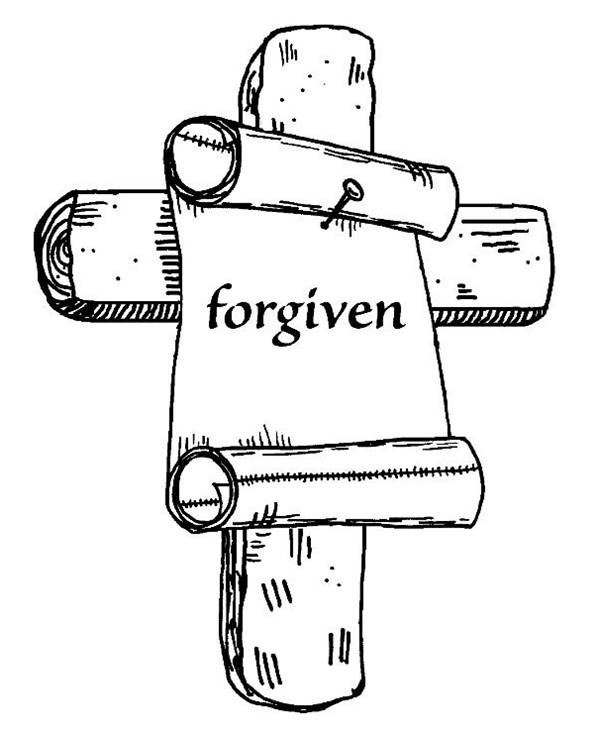
But keep this in mind - I'm not the one asking you to forgive – God is. And he surely DOES know every detail of every evil act perpetrated by one human being against another, yet he still commands us to forgive.
I assure you, your heavenly father, your savior, your redeemer, your shelter, your rock, your king, is not oblivious to the emotional, financial or physical damage that has been done to you. In fact, right now, he is waiting for you to turn to him. He desires to heal you, to restore you and to set you free.
Hebrews 4:15-16 - For we have not a high priest that cannot be touched with the feeling of our infirmities; but one that hath been in all points tempted like as we are, yet without sin. Let us therefore draw near with boldness unto the throne of grace, that we may receive mercy, and may find grace to help us in time of need.
My next post, 'Forgiveness Part II' will be dealing with all the emotions that go with forgiveness. We will find out how to rule our emotions instead of them ruling us. We will see that God has healing for our emotions.
In the meantime, let's begin to draw near to his throne. Let's receive the grace and mercy we need to guide us through the sometimes difficult mandate of forgiving others.
This week, as hard as it may be, I want you to read this post with your intellect, not your emotions.
Let's start with this question: Is it permissible for me as a Christian not to forgive? Is that an option? Is there really a choice to forgive or not?
Matthew 6:14-15 - For if you forgive men their trespasses, your heavenly Father will also forgive you: But if you forgive not men their trespasses, neither will your Father forgive your trespasses.
If we take Matthew 6:14-15 by itself, it may appear that there is no option. On the surface, it would seem that unforgiveness would send you to hell, but that is not the case.
Correct interpretation of scripture requires that all scriptures be interpreted in the context of the Bible as a whole. So let's look at forgiveness/salvation scriptures in general.
Mark 16:15-16 - And he said unto them, Go you into all the world, and preach the gospel to every creature. He that believeth and is baptized shall be saved; but he that believeth not shall be damned.
Acts 16:30-31 – [The Phillipian jailer] brought them out, and said, Sirs, what must I do to be saved? And they said, Believe on the Lord Jesus Christ, and thou shalt be saved, and thy house.
Romans 10:9 - That if thou shalt confess with thy mouth the Lord Jesus, and shalt believe in thine heart that God hath raised him from the dead, thou shalt be saved.
So we can see from these three scriptures (and others) that although there are many good reasons for you to forgive, your salvation is not dependent on forgiving others.
Salvation comes by acknowledging/believing that Jesus Christ is the Son of God and that his blood cleanses us from all sin. Notice the verses below, which remind us that God saved us by his great mercy and the power of Jesus, not by any work which we have done.
2 Timothy 1:8-9 - Be not therefore ashamed of the testimony of our Lord, who hath saved us, and called us with an holy calling, not according to our works, but according to his own purpose and grace, which was given us in Christ Jesus before the world began.
Titus 3:4-6 - But after the kindness and love of God our Savior toward man appeared, not by works of righteousness which we have done, but according to his mercy He saved us, by the washing of regeneration, and renewing of the Holy Ghost; whom He shed on us abundantly through Jesus Christ our Savior.
Think of it this way - If you had to forgive every single person who ever wronged you, or if you had to let go of every single grudge you ever held in order to be saved, then your salvation would in part be determined by your own works. And that is not possible, is it?
Ephesians 2:8-9 - For by grace have you been saved through faith; and that not of yourselves, it is the gift of God; not of works, that no man should glory.
You may find this shocking, but unforgiveness is not an unpardonable sin that will cast you into hell or cause you to forfeit your salvation. Rather, unforgiveness falls under the category of any other sin we commit, such as adultery, theft, gossip, envy, etc. Like any other sin, it needs to be confessed, dealt with and overcome.
So, you can harbor unforgiveness in your heart and still be saved. There really is a choice to forgive or not. BUT (notice the capital letters. It's a BIG but), just as with any other sin, there will be consequences. There will be a price to pay. What will unforgiveness cost me? What can I expect if I choose not to forgive?
I want to make you aware of five consequences of unforgiveness:

First, if you choose not to forgive, you are in direct disobedience to God.
Matthew 18:21-22 - Then came Peter to him, and said, Lord, how often shall my brother sin against me, and I forgive him? till seven times? Jesus said unto him, I say not unto you, Until seven times: but, Until seventy times seven.Here's the deal: Jesus commands us to forgive. If we don't, we are disobedient. Disobedience is sin. Sin is not an action against an impersonal set of rules; it is rebellion against God's personal desires and requirements. Because God loves you, disobedience will always bring correction.
Hebrews 12:5-8 - And you have forgotten that word of encouragement that addresses you as sons: "My son, do not make light of the Lord's discipline, and do not lose heart when he rebukes you, because the Lord disciplines those he loves, and he punishes everyone he accepts as a son." Endure hardship as discipline; God is treating you as sons. For what son is not disciplined by his father? If you are not disciplined (and everyone undergoes discipline), then you are illegitimate children and not true sons.
You consider yourself a child of God, right? Then at some point you can expect to be disciplined if you do not forgive. That is not to say that God is up in heaven with a whip giving you 10 seconds to forgive. The path to forgiveness is sometimes very short and uneventful, but at other times it is a twisting and crooked road that takes a long time to navigate.
Revelation 3:19 - Those whom I love I rebuke and discipline. So be earnest and repent.
Do you want to dwell under the rod of God's correction? Do you enjoy hardship? Do you want to be permanently grounded? That is where you will live, if you choose not to forgive.
Alternatively, you can choose to walk in God's ways. You can choose forgive and live under God's blessing.
Psalms 128:1-2 - Blessed are all who fear the Lord; who walk in his ways. You will eat the fruit of your labor; blessings and prosperity will be yours.
Don't suffer because you won't forgive. It isn't worth it. Choose to actively seek and participate in forgiving others. God will walk with you and bless you for it.

Consequence number two: if you choose not to forgive, you damage your relationship with other people.
Matthew 5:25-26 - Come to terms quickly with your accuser while you are going with him to court, lest your accuser hand you over to the judge, and the judge to the guard, and you will be put in prison. Truly I say to you, you will never get out until you have paid the last penny.

This parable presents us with two people in an unresolved conflict. Two people in a state of unforgiveness. They either can't or won't resolve their issues.
Instead of forgiving one another and trying to work it out, they choose to allow prison to severe their relationship. But here's the thing - not all prisons are brick and mortar.
Unforgiveness or unresolved conflict can lead to many types of prisons, and can exact penalties you never imagined in your worst nightmares.
In addition to robbing you of time, property, money and peace of mind, prolonged unforgiveness will damage or destroy your relationships.
It can imprison you in a dungeon of self pity, anger, resentment or even worse, bitterness.
Think about the last time someone offended you for any reason. It's like a wall between you and them, isn't it? It damages the relationship. If you are determined not to forgive, you will go to any lengths not to ask him/her for help. You would rather die than do one nice thing for them. You don't want to be generous or share with them. You will do anything possible to avoid that person; possibly you will go out of your way to cause them grief. You'll bad mouth them. You'll stab them in the back. If we are honest, we cannot deny that an unforgiven offence hinders or even kills our relationship with the one we hold a grudge against.
That is no way to live! Don't let your relationships with friends and family be damaged or severed because of unforgiveness.

Let's dig a little deeper into unforgiveness to find consequence number three: if you choose not to forgive, it is more damaging to you than to your adversary.
Think about that wall of unforgiveness. What is that wall made of? The number one building block is anger. If you have been wronged by another person, or even think you have been wronged by them, 99% of the time, you are angry. It's not the only building block in the wall. Anger is never a lone wolf. It always hangs out in packs with its friends like gossip, deceit, revenge, resentment, envy, rage, hate, hypocrisy, bitterness, even murder.
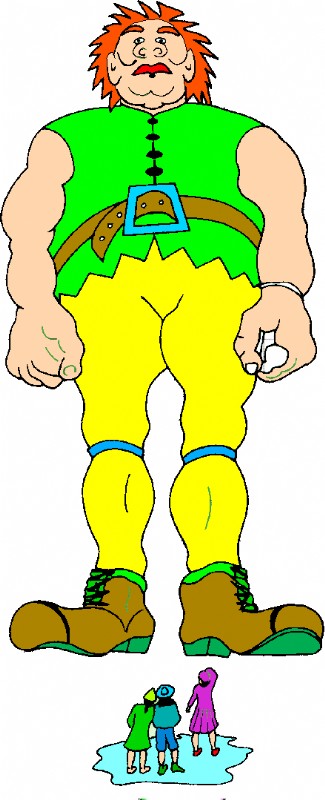
That is one GIANT burden to carry around. Reality is, you can't handle it. It will eat you alive. Not only will it kill every ounce of joy and peace that God wants you to have in your life, it will poison and kill all the fruit that the Holy Spirit is working so diligently to produce in your life.
Remind yourself of the fruit of the Spirit:
Galatians 5:22-23 - But the fruit of the Spirit is love, joy, peace, longsuffering, kindness, goodness, faithfulness, meekness, self-control; against such there is no law.
Galatians 5:25 - If we live by the Spirit, by the Spirit let us also walk.
Think back to the last time you were wronged by another person. Did you feel like loving that person? Did you have an overwhelming desire to show them kindness or goodness? How was your self-control that day, especially your tongue? Were you experiencing joy and peace? [I doubt it!]
The truth (which will set you free) is this: unforgiveness prevents you from consistently walking in the Spirit. Therefore, the only choice open to you is to walk according to the flesh.
Galatians 5:16-17 - So I say, live by the Spirit, and you will not gratify the desires of the sinful nature. For the sinful nature desires what is contrary to the Spirit, and the Spirit what is contrary to the sinful nature. They are in conflict with each other, so that you do not do what you want.
Again, the choice is yours. You can choose to forgive and walk in the Spirit, or you can choose not to forgive and walk according to the flesh. You can do one or the other, but not both. If you choose the flesh, be aware that:
Galatians 6:7-8 - Be not deceived; God is not mocked: for whatsoever a man soweth, that shall he also reap. For he that soweth unto his own flesh shall of the flesh reap corruption.
Corruption is a departure from what is pure or correct. It is synonymous with depravity, decay, rot, spoilage.
Does a rotten, depraved, fruitless, frustrating life sound good to you? Do you want to infect not only your relationships but your own self with decay, depravity and evil? No problem. Walk according to the flesh. Walk in unforgiveness; it will take you there.
Or, do you desire satisfaction and fruitfulness and fulfillment in all of your life? If so, it's best to follow Paul's advice in Ephesians:
Ephesians 4:31-32 - Get rid of all bitterness, rage and anger, brawling and slander, along with every form of malice. Be kind and compassionate to one another, forgiving each other, just as Christ God forgave you.
Here's the kicker: If you are harboring unforgiveness, it will eat you up on the inside, and will eventually spill out and touch your loved ones. The people you love the most will suffer right along with yourself and your perceived enemy. Your spouse, your kids, your siblings, your boss, your coworkers, your church family, will all suffer to some degree from the unforgiveness you are harboring towards another. You can't stop it. You can't control it.
Luke 6:45 - The good man brings good things out of the good stored up in his heart, and the evil man brings evil things out of the evil stored up in his heart. For out of the overflow of his heart his mouth speaks.
Charles Stanley in his book "The gift of forgiveness" says this: "The destructive nature of an unforgiving Spirit is such that it is not limited to one relationship. Resentment and other negative feelings spill over into other relationships. Unfortunately, people are rarely aware when hostility from one relationship affects their ability to get along with others. Eventually, they hurt people they love the most."
You may not want to hurt those you love, but that is one of the consequences of unforgiveness. What will you choose to do?

Consequence number four: If you choose not to forgive, it makes you unfruitful in the kingdom of God.
This should be obvious, based on what we already examined. If you are walking according to the flesh, by default you are not walking with the Spirit. You are out of intimate fellowship with God. You are putting a wall between you and God. You are blocked from his blessing and he is blocked from using you to your fullest extent in his kingdom.
Remember the parable of the sower? Some seed falls on the wayside, some on the rocky soil, some among the thorns, some on good soil.
Mark 4:7 - And other fell among the thorns, and the thorns grew up, and choked it, and it yielded no fruit.
Jesus interprets the parable this way:
Mark 4:18-19 - Still others, like seed sown among thorns, hear the word; but the worries of this life, the deceitfulness of wealth and the desire for other things come in and choke the word, making it unfruitful.
We most often consider the desire for other things to mean material possessions, but that is not its only interpretation.
Your desire to hold on to unforgiveness will choke the word in your life, rendering you unfruitful in the kingdom of Christ. You can deny it all you want, but God himself says it is so. I don't care how busy or involved you are in the church. If you are walking the road of unforgiveness, at best you are spinning your wheels. At worst, you are creating strife and division in the church.
How can we convincingly talk to others about the forgiveness of God when we refuse to forgive those who have wronged us? We can't!
Joyce Meyer in her book "Do yourself a favor – Forgive" concludes this: Unforgiveness "renders you unusable by God."
Is that a place you want to be? Unusable by God? Then hold onto unforgiveness.
Or would you prefer to be used of God?
Ephesians 2:10 - For we are God's workmanship, created in Christ Jesus to do good works, which God prepared in advance for us to do.
Want to do those good works? They are on the path or forgiveness.

Finally, consequence number five: If you choose not to forgive, you will not experience the manifest presence of God.
Consider the words of Christ:
Matthew 5:23-24 - Therefore if you are offering your gift at the altar and there remember that your brother has something against you, leave your gift there in front of the altar. First go and be reconciled to your brother; then come and offer your gift.
- What are gifts? In essence, they are a form of fellowship.
- Do we give gifts to strangers? No, we give them to friends and family.
- In what context? Let's get together for your birthday, or Christmas, or a graduation party.
- What happens when we get together? We visit and communicate and find out what is going on with each other. We laugh and eat and make new memories.
- We give gifts to each other. In short, we fellowship.
Gifts are also a form of fellowship in our relationship with God (money, worship, praise, time spent in his presence). God desires our fellowship more than we realize. He died in order to attain it. It is precious to him and important to him. In fact, it's the culmination of this age.
Revelation 21:2-4 - I saw the Holy City, the new Jerusalem, coming down out of heaven from God, prepared as a bride beautifully dressed for her husband. 3 And I heard a loud voice from the throne saying, 'Now the dwelling of God is with men, and he will live with them. They will be his people, and God himself will be with them and be their God. 4 He will wipe every tear from their eyes. There will be no more death or mourning or crying or pain, for the old order of things has passed away.
Fellowship with man is one of God's ultimate plans. It was his plan in the garden of Eden. It's his plan at the end of this present age. And yet, as much as God wants and desires fellowship with us, what did he say back in Matthew 5? God says: I choose to defer fellowship with you until you are in right standing with other people. Then and only then, can we have intimacy with him and experience his manifest presence.
When you have been offended or wronged, it hurts you or makes you angry. God does not always wave his hand and immediately change your painful circumstances. But what he does always do, is sustain us through them. Sometimes you still have to pass through the water or fire, but God promises to be with us.
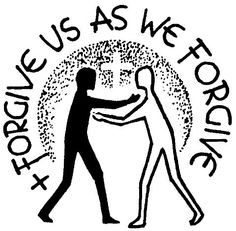
As you work through the pain and difficulty of forgiving others as Christ forgave you, you will grow and mature spiritually, and you will be drawn closer to God than you ever have been.
Job lost all he had - children, livestock, money, home, health, all of it. Then his wife encourages him to curse God and die, and his friends accuse him of sin. But as we know, Job was innocent. If anybody had an opportunity to be offended, it was him. He had an opportunity to be mad at God, mad at his wife and made at his friends. But at the end of Job's trials, he makes a very interesting statement about God.
Job 42:5 - My ears had heard of you, but now my eyes have seen you.
In other words, before this trial, before these offences and hurts slapped me in the face, I knew about God. But now that I have walked through this experience, now I truly know you in a more personal intimate kind of way. You will experience the same intimacy with God if you choose to walk the path of forgiveness.
Based on the facts presented here today (not on emotion but on fact), are you ready to choose to forgive those who have wronged you?
Let me give you some encouragement:
All things are possible with God. Eventually, with his help, you will be able to forgive and move on in life. It may be a long road, but God is with you every step of the way. Who knows more about forgiveness than he does?
Let me give you some relief:
Forgiveness is often a process. It takes time to release the feelings of anger, hurt and betrayal you may be feeling. That's okay. Lean on God. Confess to him that you desire or choose to forgive, and the Holy Spirit will guide you.
Let me give you some strength:
Despite what others have done to you, God has a perfect plan for you. It is his desire to use forgiveness to set you free. He wants you to have life and have it more abundantly. He wants to give you peace that passes all understanding. His yoke is easy and his burden is light. Healing, blessing, reward and abundant life are waiting for you on the road of forgiveness.






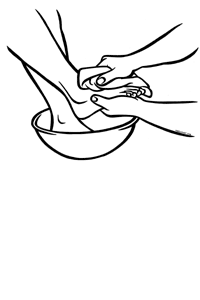 See the picture? Jesus, knowing he was the Son of God, was still willing to take on the humble/lowly role of a servant.
See the picture? Jesus, knowing he was the Son of God, was still willing to take on the humble/lowly role of a servant. 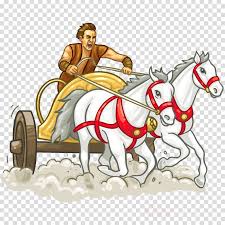


 Paul's adversaries (mainly the devout Jews) claimed that his imprisonment was proof that he was essentially a liar and a blasphemer. After all, if God really wanted the Gentiles to be saved, why weren't things going well for Paul? On the other hand, Paul's supporters assert that his imprisonment was a confirmation of the truth. If the other apostles suffered persecution and imprisonment for sharing the gospel, why not Paul?
Paul's adversaries (mainly the devout Jews) claimed that his imprisonment was proof that he was essentially a liar and a blasphemer. After all, if God really wanted the Gentiles to be saved, why weren't things going well for Paul? On the other hand, Paul's supporters assert that his imprisonment was a confirmation of the truth. If the other apostles suffered persecution and imprisonment for sharing the gospel, why not Paul? 
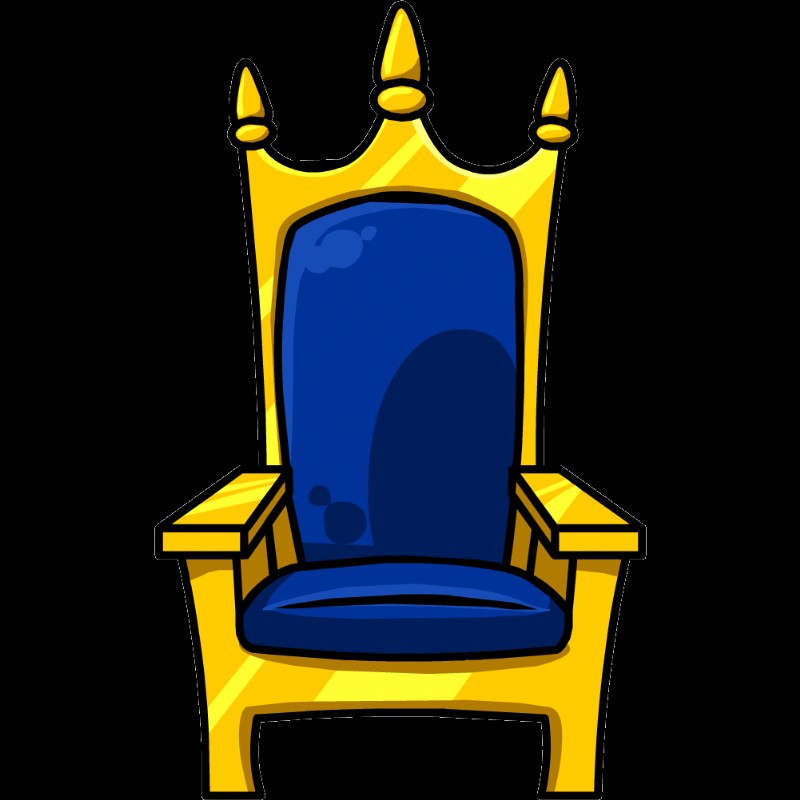




 The analogy of earnest money can help you and I better understand what the Holy Spirit is doing for us when he seals/brands us as belonging to Christ.
The analogy of earnest money can help you and I better understand what the Holy Spirit is doing for us when he seals/brands us as belonging to Christ.
 When we consider that God has chosen to adopt us as sons and daughters, solely by his infinite grace and love (not based on any good within ourselves), what should our reaction be? PRAISE!
When we consider that God has chosen to adopt us as sons and daughters, solely by his infinite grace and love (not based on any good within ourselves), what should our reaction be? PRAISE!


 For the next few weeks we will be considering the New Testament book of Ephesians. Let's begin with some background information on this epistle.
For the next few weeks we will be considering the New Testament book of Ephesians. Let's begin with some background information on this epistle. To summarize, Ephesus was a notorious city; it was wealthy, luxurious and excessive. At the same time, we would expect to see homelessness, crime and sexual immorality. It had a culturally diverse population. Its religious practices were a combination of both eastern and western thought. I don't know about you, but all this seems vaguely familiar to me - I think it could describe many of the cities we live in today. We could probably take Ephesus, drop it in the middle of America someplace, and no one would really think it was that strange!
To summarize, Ephesus was a notorious city; it was wealthy, luxurious and excessive. At the same time, we would expect to see homelessness, crime and sexual immorality. It had a culturally diverse population. Its religious practices were a combination of both eastern and western thought. I don't know about you, but all this seems vaguely familiar to me - I think it could describe many of the cities we live in today. We could probably take Ephesus, drop it in the middle of America someplace, and no one would really think it was that strange!  Notice that this presents each of us with a wonderful door of opportunity to demonstrate the love of Christ to the unsaved world. When you endure a trial with peace, the unsaved will notice. They will want to know how you are keeping it all together when you should be falling apart. They will want to know how to obtain the peace that you have, and thus you will have a chance to share Christ with them.
Notice that this presents each of us with a wonderful door of opportunity to demonstrate the love of Christ to the unsaved world. When you endure a trial with peace, the unsaved will notice. They will want to know how you are keeping it all together when you should be falling apart. They will want to know how to obtain the peace that you have, and thus you will have a chance to share Christ with them.